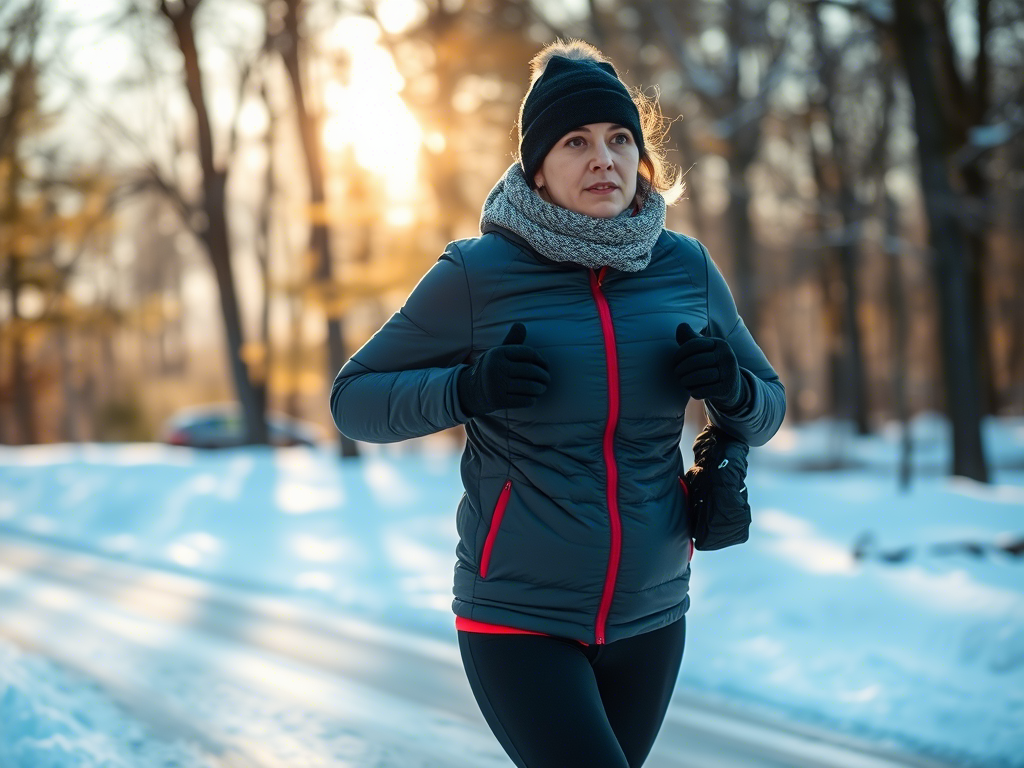
Stay Sun-Smart All Winter: The Fitness Fix for Low Vitamin D
🧘♂️ Stay Active in Winter to Keep Vitamin D Strong
New research shows that regular exercise during the colder months does more than keep you fit — it may also help protect your vitamin D levels.
As winter brings shorter days and less sunlight, many people see their vitamin D drop. But a recent study from the University of Bath, University of Birmingham, University of Cambridge, and other institutions offers promising news: moderate indoor exercise can help maintain healthy vitamin D levels — even without sun exposure or supplements.
The study, published in Advanced Science , followed adults with overweight or obesity who followed a 10-week indoor workout plan during winter. Compared to those who didn’t exercise, they experienced significantly smaller declines in vitamin D — despite no weight loss or additional supplementation.
This suggests that staying active could be a natural, effective way to support vitamin D when sunlight is scarce.
🏃♀️ The Winter Workout That Boosts Vitamin D
The winter exercise plan was simple but effective: participants completed four workouts per week — two brisk treadmill walks, one steady bike ride, and one high-intensity cycling session.
What made the biggest impact was how this routine helped preserve the body’s active form of vitamin D , known as 1,25(OH)₂D₃ . This is the version of vitamin D that supports strong bones, a healthy immune system, and overall well-being. Previous studies have shown that supplements alone don’t maintain this active form as well as exercise did in this study.
Dr. Oly Perkin, lead author from the University of Bath, said:
“This is the first study to show that exercise on its own can protect against the seasonal drop in vitamin D. It’s a powerful reminder that we’re still discovering new ways physical activity benefits our health.”
🧪 Study Highlights: Exercise Helps Protect Vitamin D Levels in Winter
New research reveals that staying active during the colder months can significantly help protect vitamin D levels:
- People who followed a regular exercise routine experienced only a 15% drop in overall vitamin D — compared to a 25% drop in those who didn’t exercise.
- Crucially, exercisers maintained healthy levels of the active form of vitamin D (1,25(OH)₂D₃), which supports bone strength and immune function. In contrast, this key form dropped by 15% in the non-exercising group.
- Participants’ weight remained stable throughout the study, showing that the benefits came from exercise itself , not from weight loss.
- To avoid sun-related interference, the study was conducted from October to April — when UV light is too weak for vitamin D production in the UK — and participants avoided supplements.
This shows that even without sunlight or pills, regular physical activity can be a powerful tool to support vitamin D through winter.
💪 Regular Exercise Offers Double Protection for Vitamin D
Earlier research from the team showed that a single workout can temporarily raise vitamin D levels. Now, this new study is the first to show that regular cardiovascular exercise helps maintain baseline vitamin D levels throughout winter — offering long-term protection when sunlight is scarce.
Professor Dylan Thompson, lead researcher of the VitaDEx study, explained:
“These findings show that exercise boosts vitamin D metabolites every time you’re active. More importantly, regular workouts also help preserve your resting vitamin D levels during the winter. This gives you a double benefit: one boost during and after each session, and a longer-term improvement in your overall vitamin D status.”
In short, staying active isn’t just good for fitness — it’s a powerful way to support your immune system, bones, and overall health all winter long.
🧑🔬 Real-Life Benefits: Exercise Boosts Vitamin D in Winter
The study involved more than 50 adults in a well-structured, randomized controlled trial. The results offer strong evidence that regular exercise can be a practical and effective way to maintain vitamin D levels during winter — especially for people who are overweight or obese, as supplements often don’t work as well for them.
Liam Kilawee, one of the participants, shared his experience:
“I was really impressed by how detailed the process was and how engaged the team was throughout the study. It was rewarding to see that my efforts made a real difference.”
Dr. Oly Perkin added:
“If you’re concerned about your vitamin D during the colder months, staying active every week can help — and it comes with many other health benefits that supplements simply can’t match.”
Professor Dylan Thompson concluded:
“These findings should inform public health strategies. Exercise needs to be part of the conversation when it comes to supporting vitamin D levels in winter.”





